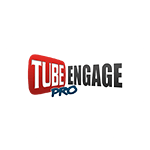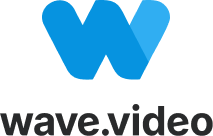Yes, most video marketing software is compatible with a variety of devices and platforms, including desktop PCs, laptops, tablets, and smartphones. Users can create, edit, and publish videos from their selected device. Furthermore, many video marketing tools includes cloud-based storage, allowing you to access and manage films from any platform with an internet connection. This adaptability enables firms to reach a larger audience and produce films on the fly.
List of 20 Best Video Marketing Software
InVideo, a video creation tool that allows you to easily make captivating videos in just minutes. With affordable pricing starting at $10/month, this user-friendly platform is accessible to individuals of all skill levels. Say farewell to complex edi...Read More InVideo
VideoSeeder - an easy-to-use desktop application that simplifies the distribution of your videos across all popular video and social media platforms. With just one click, VideoSeeder instantly publishes and shares your videos, driving more traffic an...Read More VideoSeeder
Tube Engage Pro - the must-have marketing intelligence software for YouTube. Dominate your competition by analyzing their YouTube comments and unravelling their strategies. Compatible with Windows and complete with extensive training and 24/6 live ch...Read More Tube Engage Pro
Promo.com is platform that simplifies and enhances all marketing activities. You can easily create and manage promotion content using its intuitive tools, resulting in improved productivity. This software provides a complete solution for producing hi...Read More Promo.com
Doodly is an online software designed for crafting captivating whiteboard animations. Featuring a user-friendly drag-and-drop interface, it allows users to easily create unlimited personalized videos. With compatibility for all devices, including MAC...Read More Doodly
SurFast Video Downloader solution for downloading videos, audio, subtitles, and thumbnails from over 1000 websites. With the ability to download in bulk and even live streams, SurFast makes it easy to access all your favorite content. Never miss out...Read More SurFast Video Downloader
FocuSee is a screen recording solution for creating captivating videos. With its advanced features, easily record and produce stunning Demo, Tutorial, Promo, Launch, Pitch, and Sales videos. Utilize auto zoom, customizable cursor styles, and interact...Read More FocuSee
Vyond – animation software that streamlines video creation for all levels of expertise. With a vast selection of editable templates, an extensive asset library, and user-friendly tools, Vyond allows you to effortlessly elevate your storytellin...Read More Vyond
ThankView is a tool for cultivating genuine relationships with your donors through personalized video messages. With its user-friendly interface and customizable options, ThankView streamlines communication and strengthens engagement. Elevate your do...Read More ThankView
Animiz solution for creating captivating animations without any technical skills. Our innovative online whiteboard animation software streamlines the process, enabling you to showcase your animation demos effortlessly. With its user-friendly interfac...Read More Animiz
Biteable is a tool for creating impressive videos online. With a wide range of customizable templates and user-friendly features, Biteable makes collaboration seamless and produces standout results. Whether youre a small team or a large organization,...Read More Biteable
Animatron is a software for whiteboard animations. Effortlessly bring your ideas to life and captivate your audience with seamless integration between candidates and managers, an intuitive user-interface, and charming characters. Take your animations...Read More Animatron
GoAnimate is a online whiteboard video creator for producing top-notch, polished videos. With powerful features like script writing, voiceover recording, and stunning animations, creating impactful videos is a breeze. Plus, effortlessly share your vi...Read More GoAnimate
Muvi Player SDK is the perfect solution for developers looking to seamlessly integrate powerful player features into their websites and apps. With its user-friendly interface, Muvi Player SDK offers complete control and flexibility to enhance the use...Read More Muvi Player SDK
mpvPlayer: solution for uploading and sharing videos! Increase your online visibility by publishing your videos and promoting them on social media and your own website. Benefit from rewards for every view and take charge of your content with our easy...Read More mpvPlayer
4K video downloader Pro - the perfect solution for downloading videos from social media platforms. Compatible with Android, IOS, and PC, this user-friendly software lets you effortlessly download high-resolution videos for free. Whether youre on the...Read More 4K video downloader Pro
Raw Shorts the online whiteboard video creation software. Say goodbye to the hassle and expenses of hiring animators or studios - with Raw Shorts, you can easily and quickly create stunning videos with just a few clicks. Trusted and used by various o...Read More Raw Shorts
VideoScribe is a tool for businesses and educational institutions to create captivating animated content for social media platforms like YouTube, Facebook, and LinkedIn. This robust online platform offers a plethora of features to easily create visua...Read More VideoScribe
Wave.video - your all-in-one video marketing solution. With our cutting-edge video editor, thumbnail creator, live streaming studio, recording app, and hosting capabilities, you have all the tools you need to create impactful videos. Streamline your...Read More Wave.video
muse.ai is a video hosting and streaming solution for the modern era. Effortlessly store, share, and embed videos and collections with the added convenience of video search feature. Elevate your viewing experience and optimize video management with m...Read More muse.ai
Learn More About Video Marketing Software
- What Is Video Marketing Software?
- What Are The Recent Trends In Video Marketing Software?
- Benefits Of Using Video Marketing Software
- Important Factors To Consider While Purchasing Video Marketing Software?
- What Are The Key Features To Look For In Video Marketing Software?
- Why Do Businesses Need Video Marketing Software?
- How Much Time Is Required To Implement Video Marketing Software?
- What Is The Level Of Customization Available In Video Marketing Software?
- Which Industries Can Benefit The Most From Video Marketing Software?
- Conclusion
What Is Video Marketing Software?
Video marketing software is a digital tool that enables organisations and individuals to make, edit, and distribute videos for marketing objectives. It is intended to streamline the video creation process and improve the performance of marketing campaigns by offering a user-friendly interface and a variety of capabilities. With the growing popularity of video as a marketing tool, video marketing software has become a must-have for any business trying to stay ahead of the competition.
One of the most important benefits of video marketing software is the ability to easily make high-quality videos. It frequently includes pre-built layouts, images, and animations, making it perfect for people with little to no video editing knowledge. This saves time and resources, allowing businesses to concentrate on other areas of their marketing plan.
In addition, video marketing software provides a variety of customisation possibilities, allowing firms to personalise their movies to their brand, target audience, and marketing objectives. This includes the option to include captions, logos, and calls-to-action in videos, all of which can help to build a strong brand identity and increase engagement. Another important feature of video marketing software is the capacity to disseminate videos across different platforms.
This covers social media platforms, websites, email campaigns, and more. With the increase in video consumption across several platforms, having a solution that can smoothly distribute films can have a huge impact on the success of a marketing campaign. Furthermore, video marketing software offers useful insights and statistics, allowing firms to monitor the performance of their films.
This includes measures like views, click-through rates, and engagement, which can assist organisations in making data-driven decisions to improve their videos and marketing strategies. Investing in video marketing software can provide various benefits to a business, such as improved reach, stronger engagement, and a higher return on investment. With the correct features and a user-friendly interface, it can assist organisations in creating effective and professional-looking videos that engage viewers and generate results.
What Are The Recent Trends In Video Marketing Software?
Video marketing has emerged as a crucial tool for firms seeking to reach and engage their target consumers. As technology advances, there is a rising demand for effective video marketing software. To remain current and competitive, organisations must keep up with the most recent advancements in video marketing software.
Let's explore the latest trends in video marketing tools and how they can help your organisation.
1. Integration of AI And Augmented Reality: Artificial intelligence (AI) and augmented reality (AR) are becoming increasingly popular in video marketing. AI-powered video marketing software can analyse and measure user engagement, allowing firms to generate customised and targeted movies for their audience. Similarly, AR technology can improve the viewing experience by including interactive aspects into the video. This trend is predicted to continue as businesses seek new methods to engage with their customers.
2. Mobile-Friendly Videos: With the growing popularity of mobile devices, it's no surprise that video marketing software is becoming more mobile-friendly. This offers features like adaptable video players, adaptive streaming, and video optimisation for various screen sizes. As more consumers watch videos on their mobile devices, firms must have mobile-friendly video marketing software.
3. Live Streaming: Live streaming has taken the video marketing industry by storm. With the rise of services such as Facebook Live, Instagram Live, and YouTube Live, businesses are utilising live streaming to engage with their audiences instantly. Businesses can use video marketing software with live streaming features to promote their products or services, engage with their audience, and generate buzz for their brand.
4. Personalised And Interactive: Features Personalisation has become a critical component of video marketing. Data and AI have enabled firms to make personalised films that appeal to each individual's tastes. This not only helps to keep the viewer's attention, but it also raises the likelihood of conversion. Additionally, interactive features such as clickable hotspots, quizzes, and forms are being included into videos to keep the audience interested and provide vital information.
5. Cross-Platform Publishing: Businesses are increasingly looking for video marketing software that allows them to broadcast their movies across numerous channels, including social media, websites, and emails, in order to reach a larger audience. This saves time while simultaneously increasing the video's reach and impact. The ability to post films to several channels from a single platform is a trend that will continue.
Benefits Of Using Video Marketing Software
Video marketing has emerged as a crucial tool for organisations looking to reach their target audience and promote their products or services. With the advancement of technology, using video marketing software has become an effective and efficient method of creating, editing, and distributing videos.
Let's explore the advantages of using video marketing software and why it is a good investment for your business.
1. Professional-Quality Videos: With video marketing software, you no longer need to invest in expensive equipment or hire a professional cameraman. The software includes comprehensive features and tools that allow you to make professional-looking videos. This not only saves you time and money, but also makes your marketing films stand out from the crowd.
2. Increased Brand Awareness: Video has a better engagement rate than other types of material. Using video marketing software, you can create visually beautiful and interesting videos that will capture the attention of your intended audience. This, in turn, serves to enhance brand visibility and recognition while also leaving a lasting impact on consumers' thoughts.
3. Cost-Effective: When compared to traditional marketing tactics, investing in video marketing software is a less expensive option. You can save money on production by creating and editing videos in-house, rather than outsourcing video marketing services. This allows you to reallocate your marketing budget to other areas while still meeting your marketing objectives.
4. Versatility In Content Creation: Video marketing software includes a variety of features and templates that allow you to generate different types of films. Whether you want to make product demos, instructional films, or client testimonials, the program provides limitless options to meet your individual marketing requirements.
5. Reach A Larger Audience: Video marketing software enables you to share your videos over many platforms and channels, including social media, your website, and email campaigns. This means you may reach a larger audience and extend your brand's reach, resulting in more conversions and sales.
6. Detailed Analytics: One of the primary benefits of employing video marketing software is the ability to measure and analyse video performance. The platform gives useful information such as views, engagement rates, and conversions to help you evaluate how well your videos are performing with your audience. These insights enable you to make data-driven decisions that can improve your video marketing approach and produce greater outcomes.
Important Factors To Consider While Purchasing Video Marketing Software?
The appropriate tools are key for developing compelling and effective video marketing content. Here is when video marketing software comes in handy. With so many options on the market, it might be difficult to choose the best one for your organisation.
Before choosing video marketing software, you should examine several crucial factors to guarantee that you make the best option possible.
1. Budget: Before investing in video marketing software, examine your budget, just as you would with any other investment. Prices might range from reasonable to high-end, so knowing your budget ahead of time will help you narrow down your possibilities.
2. Functions And Functionality: Because video marketing software can provide a wide range of functions, it is critical to assess your requirements and select one with characteristics that are relevant to your aims and objectives. Some popular features include video editing, analytics, social media integration, and A/B testing.
3. Usability: The software should have an intuitive interface that is simple to navigate. This is especially critical if you're new to video marketing. You want to be able to make and publish films quickly and efficiently, with no steep learning curve.
4. Integrations: Most firms already employ software and tools, such as email marketing platforms or customer relationship management systems. To improve your workflow and increase efficiency, use video marketing software that connects with these technologies.
5. Compatibility: Before making a purchase, make sure the software works with your operating system and device. Some software may only work with Mac or Windows, while others may include a mobile app for on-the-go editing.
6. Customer Support: If you have any problems or questions, it is critical to have dependable customer service from the software vendor. Look for choices that provide 24-hour assistance, live chat, and useful materials like tutorials and guidelines.
7. Reviews And Reputation: Conduct research and study feedback from other firms that have used the program. This will provide you with useful insights into its performance, usability, and customer support. You can also verify the software provider's reputation and track record to assure dependability and trustworthiness.
What Are The Key Features To Look For In Video Marketing Software?
When looking for video marketing software, there are several crucial characteristics that every buyer should examine to guarantee they get the best option for their company.
Here are the key features to consider while cutting down your options:
1. Video Production And Editing Capabilities: A video marketing software's primary feature is the ability to produce and edit videos. Look for tools that include a number of editing options, such as text, music, and transitions, to create professional-looking videos.
2. Video Hosting And Distribution: Video marketing is only effective if your videos reach your intended audience. Look for software that includes video hosting and distribution features, such as embedding videos on your website and sharing them on social media.
3. Analytics And Reporting: Tracking and analysing the performance of your videos is critical for determining the success of your video marketing campaigns. Look for software that includes detailed analytics and reporting to help you understand KPIs such as views, engagement, and conversion rates.
4. Custom Branding: Branding is a critical component of any marketing plan, including video. Look for software that allows you to personalise your films with your brand's logo, colours, and messaging to ensure a consistent and professional appearance.
5. Integration With Other Platforms: To simplify your video marketing efforts, look at software that interfaces with other platforms you may use, such as email marketing or customer relationship management (CRM) software. This makes it easier to include videos into your whole marketing approach.
6. Mobile-Friendly: As more people consume video content on mobile devices, it's critical to use software that supports mobile optimisation. This means that your movies will be responsive and look good on any device, enhancing the user experience and increasing engagement.
7. Customer Support: As with any software, dependable customer service is essential. Look for software that provides responsive customer assistance, whether via email, phone, or live chat, to assist you in troubleshooting any issues and making the most of the product's capabilities.
Why Do Businesses Need Video Marketing Software?
Video marketing has become a crucial tool for organisations of all kinds, and it's easy to see why. With the rise of social media and internet platforms, video has swiftly emerged as the most effective and engaging way to reach and interact with prospective clients. This is where video marketing software comes in: it is a strong tool that may drastically simplify and improve the process of generating and sharing films.
First and foremost, firms want video marketing software to stand out in a congested digital environment. With so much content being posted online every second, it can be difficult to attract the attention of your intended audience. However, videos have a unique power to capture people's attention and keep them interested, making them a vital tool for businesses trying to raise brand awareness and reach new audiences.
Furthermore, video marketing software enables firms to produce professional-looking movies without the need for costly equipment or technical expertise. These programs frequently include pre-made templates, drag-and-drop editors, and other features that make it simple for anyone to create professional-quality videos. This accessibility not only saves time and costs, but it also enables organisations to maintain a consistent and unified corporate image throughout all of their movies.
Another important feature of video marketing software is the ability to measure and track the effectiveness of video campaigns. Businesses may better understand how their target audience reacts to their films by offering data on measures such as views, engagement, and click-through rates. This data-driven strategy enables firms to make more educated decisions, perhaps leading to higher ROI on marketing initiatives.
Furthermore, video marketing software enables firms to maximise the value of video material. Businesses may increase the reach and impact of their videos by using tools like video optimisation for several platforms and automatic subtitles. This is especially crucial in today's environment, as individuals consume content across a variety of devices and platforms, each with their own preferences.
How Much Time Is Required To Implement Video Marketing Software?
When it comes to installing video marketing software for your business, the time necessary will vary depending on the program you select and the intricacy of your marketing strategy. It can take anywhere from a few days to a few weeks to properly integrate the software into your marketing strategy. One of the first stages in deploying video marketing software is creating an account and becoming acquainted with the platform's features.
This could take a day or two, depending on your level of technical expertise and the software's usability. Next, you'll need to make and upload your videos to the software. This procedure can take several hours or days, depending on the length and quality of your movies. Once your films have been uploaded, you can begin using the software's features to develop targeted campaigns and track their effectiveness.
This stage may necessitate some testing and adjusting to verify that your films are reaching the intended audience and achieving the desired outcomes. This could take a few days or weeks, depending on the complexity of your marketing plan. In addition to these initial implementation requirements, it's crucial to remember that properly employing video marketing software necessitates a consistent time investment.
This may include generating and publishing new videos on a regular basis, analysing and adapting your campaigns, and connecting with your audience via comments and shares. Overall, implementing video marketing software might take anything from a few days to a few weeks, with ongoing time commitments for campaign maintenance and optimisation. To ensure a seamless and fast implementation process, carefully examine your company's needs as well as the software's characteristics.
What Is The Level Of Customization Available In Video Marketing Software?
Businesses may develop compelling and personalised marketing campaigns with video marketing software, which includes a variety of customisation possibilities. The level of customisation offered by these software tools enables customers to personalise their movies to their individual brand, target audience, and marketing objectives.
Here are some of the primary areas where customisation can be implemented in video marketing software:
1. Branding: Most video marketing software enables customers to include their brand's logo, colours, and fonts in their films. This not only results in a consistent visual identity, but it also improves brand awareness and recall.
2. Video Content: Video marketing software provides a variety of customisation options, including video length and content kind. This enables firms to make videos that reflect their brand's tone and messaging.
3. Call-To-Action: Including a call-to-action (CTA) in videos is an essential component of marketing efforts. Businesses can use video marketing software to customise their CTAs based on their goals, such as driving website traffic, generating leads, or increasing sales.
4. Personalisation: Personalisation is essential for building a genuine connection with the target audience. Businesses can use video marketing software to add personalised features to their videos, such as the viewer's name, location, or purchase history, making them more relevant and engaging.
5. Distribution: Customisation in distribution enables companies to target specific demographics and channels. Businesses, for example, can make several versions of their videos for social media, email marketing, and their website to meet the demands and preferences of each channel and audience.
Which Industries Can Benefit The Most From Video Marketing Software?
In today's digital world, video marketing has evolved into an indispensable tool for organisations. Not only is it visually appealing, but it also efficiently communicates a brand's message to its intended audience. With the explosion of video usage, businesses can no longer afford to overlook the benefits of video marketing. Here is when video marketing software comes in handy. Video marketing software includes a variety of features and capabilities that can help a brand's video marketing operations. From video creation and editing to distribution and analytics, this program simplifies the entire video marketing process. But which sectors will profit the most from video marketing software?
Let's have a look.
1. E-commerce: Visuals play an important role in showcasing products and enticing potential purchasers. Using video marketing software, e-commerce enterprises can generate high-quality product videos that assist customers comprehend the product. These movies can also be utilized in social media and email marketing campaigns to boost sales and conversion rates.
2. Education: Video marketing has had a huge impact in the education business as well. With the development of online learning, educational institutions are embracing video marketing software to generate compelling and instructive movies for their students. These films can vary from virtual classroom lectures to instructional videos, making the learning process more participatory and accessible.
3. Healthcare: The healthcare business frequently struggles to effectively communicate complex medical facts to people. Medical professionals can, however, use video marketing software to create videos that clarify medical language while also educating patients about their health concerns and treatments. These videos can also be used as marketing tools, promoting healthcare services to prospective patients.
4. Hotel: The hotel industry relies largely on the consumer experience to produce revenue. Hotels, resorts, and restaurants can use video marketing software to create visually appealing videos that highlight their facilities, services, and amenities. These movies can also be utilised for social media advertising and email marketing to attract new guests and increase bookings.
5. Real Estate: Investing in real estate is a big decision, and many buyers prefer to inspect homes in person before making a purchase. Real estate brokers can, however, use video marketing software to produce virtual property tours that provide potential purchasers with a detailed look at the property. These films can save time and effort, attracting more serious consumers and accelerating transactions.
Conclusion
Finally, investing in video marketing software can provide significant benefits to firms of all sizes and industries. Companies may use the features and capabilities of these tools to create intriguing and engaging video content that will help them attract and keep customers, enhance brand awareness, and drive conversions. When selecting video marketing software, you should evaluate your individual requirements and budget, as well as the features and benefits provided by the various solutions.
Some important considerations include ease of use, customisation possibilities, analytics and reporting, and customer support. To guarantee optimal efficacy, your video marketing approach should be reviewed and adjusted on a regular basis. With the appropriate video marketing software, organisations can take their marketing efforts to the next level and achieve their objectives in a dynamic and visually appealing manner.
Video Marketing Software FAQ's
Can Video Marketing Software Be Accessed Across Multiple Devices And Platforms?
Is Video Marketing Software Future-Proof And Adaptable To Emerging Technologies Like AI, Blockchain Or IoT?
Video marketing software is built to keep up with the ever-changing technological world, and it is continually updated to stay current. As AI, blockchain, and IoT technologies evolve, video marketing software adapts to give customers with cutting-edge features and capabilities. This not only makes the software future-proof, but it also allows firms to stay ahead of the curve with their video marketing tactics.
Is There A Free Trial Offered To Assess Video Marketing Software Before Committing?
Yes, many video marketing software providers provide a free trial period so that users can evaluate the product before committing to a subscription. This lets customers to test the software's features, user interface, and overall functionality to ensure that it fulfils their requirements. It is critical to take advantage of the free trial and thoroughly assess the software before purchasing a long-term membership.
Does Video Marketing Software Offer Data Security Features And Meet Regulatory Compliance Standards?
Yes, most video marketing software solutions have data security measures and comply with regulatory requirements. These features include encryption of sensitive data, access limits, and frequent security updates. Furthermore, industry-specific regulatory regulations such as GDPR and HIPAA are adhered to, providing businesses and customers with piece of mind. To secure your brand and customer data, you should use reliable video marketing software that prioritises data protection.
Can Video Marketing Software Integrate Seamlessly With Existing Tools And Platforms?
Yes, most video marketing software is built to work easily with other tools and platforms, such as email marketing, social media, and website builders. This enables businesses to make and distribute movies easily without having to jump between platforms. Integration also enables improved data tracking and analysis, yielding useful insights for future marketing campaigns. With the appropriate tools, firms can streamline their video marketing operations and reach a larger audience.






















